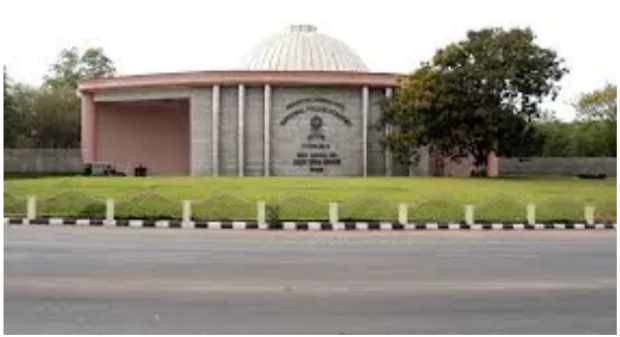Becoming an IPS officer requires success in the UPSC Civil Services Exam and rigorous training. Learn how to become an IPS officer after graduation with complete eligibility details.

How to Become an IPS Officer: The Indian Police Services (IPS) stand as one of the three All India Services, alongside IAS and IFS, forming the backbone of the Indian bureaucracy. Established in 1948, the IPS replaced the Indian Imperial Police and has since been crucial in maintaining law and order, upholding the Constitution, and protecting citizens.
Many aspirants dream of how to become an IPS officer, owing to the stature, responsibility, and prestige associated with the role. Interested candidates must read this detailed guide on how to become an IPS officer, covering eligibility, qualifications, selection procedure, and training.
To become an IPS officer, candidates must clear the Civil Services Examination (CSE) conducted by the Union Public Service Commission (UPSC). This examination recruits officers for various services including IAS, IPS, IFS, IRS, among others.
| IPS Exam Overview | |
| Exam Authority | Union Public Service Commission (UPSC) |
| Service Name | Indian Police Service (IPS) |
| Training Institute | Sardar Vallabhbhai Patel National Police Academy, Hyderabad |
| Cadre Control | Ministry of Home Affairs |
| Recruitment Modes | UPSC CSE & State Police Promotions |
You must appear for the UPSC Civil Services Examination (CSE), which consists of three stages:
Once selected, candidates undergo extensive training at the Sardar Vallabhbhai Patel National Police Academy (SVPNPA), Hyderabad.

Source: svpnpa.gov
If you are wondering what is the procedure to become an IPS officer, the first step is ensuring you meet the following criteria:
This fulfills the qualification to become an IPS officer.
Many aspirants often wonder how to become an IPS officer after graduation, especially those who decide to join civil services later in their academic journey. The good news is that a graduate from any recognized university, regardless of stream, is eligible to apply for the UPSC Civil Services Examination.
Start by familiarising yourself with the UPSC CSE format:
Select NCERT books and standard reference materials to understand basic concepts. Follow a fixed schedule and strengthen your basics first.
While coaching is optional, it can be helpful for structured learning and expert guidance. Coaching can offer mentorship, live classes, and mock tests.
A daily 8–10 hour study routine is recommended. Make concise notes and revise regularly. Solving previous years’ question papers helps identify weak areas and familiarises you with question patterns.
Enroll in mock test series for Prelims and Mains. Timed practice improves your performance and enhances answer-writing skills. Analyse your mistakes and rectify them.
Tailor your strategy for each stage:
Remember, merely qualifying isn’t enough. Since IPS is allotted based on rank, aim for a top rank out of 2025 total marks (Mains + Interview). Only then can you become an IPS officer.
The procedure to become an IPS officer begins with clearing the Civil Services Examination (CSE) conducted annually by the Union Public Service Commission (UPSC). The examination is considered one of the toughest in India due to its vast syllabus and competitive nature.
Below is a detailed, step-by-step guide to help you understand what is the procedure to become an IPS officer:
Begin by filling out the UPSC Civil Services Exam form. Notifications are generally released in February each year on the UPSC official website.
The Preliminary exam is objective and comprises two papers:
The UPSC Mains is subjective and includes nine papers:
| UPSC Mains Pattern | |||
| Paper | Subject | Marks | Qualifying/Merit |
| A | Indian Language | 300 | Qualifying |
| B | English | 300 | Qualifying |
| I | Essay | 250 | Merit |
| II-V | General Studies (I–IV) | 250 each | Merit |
| VI-VII | Optional Subject Papers | 250 each | Merit |
Only candidates who qualify the Mains are called for the final interview.
This round evaluates leadership, ethical values, awareness, and presence of mind. The interview carries 275 marks.
Once selected, candidates are allotted IPS cadres and undergo training:
To successfully become an IPS officer, here are some expert-backed tips:
Once selected, you will undergo nearly two years of training at SVPNPA. Here, you will be trained in laws, policing, national security, leadership, and more. Upon successful completion, you will be posted in various capacities like:
With promotions, your responsibilities increase, and so does your influence in maintaining law and order across the nation.
To become an IPS officer, one needs more than just academic qualifications—it requires passion, patience, perseverance, and purpose. With the right preparation strategy and consistent effort, aspirants can overcome all hurdles in their path to join the Indian Police Service. Now that you understand how to become an IPS officer, take your first step today by committing to a disciplined preparation journey.
Ready to boost your UPSC 2025 preparation? Join PW’s UPSC online courses today!
Complete your graduation, prepare for UPSC CSE, and secure a high rank to get the IPS service.
You must clear the UPSC Civil Services Examination.
A bachelor’s degree from a recognized university is the minimum educational requirement.
Indian citizenship, age between 21–32 years (with relaxations), and a graduation degree.
Clear all three stages of UPSC CSE: Prelims, Mains, and Interview, and meet physical requirements.
Yes, coaching or mentorship provides guidance, structure, and expert resources for better preparation.
<div class="new-fform">
</div>